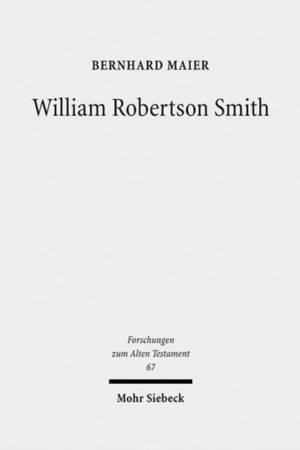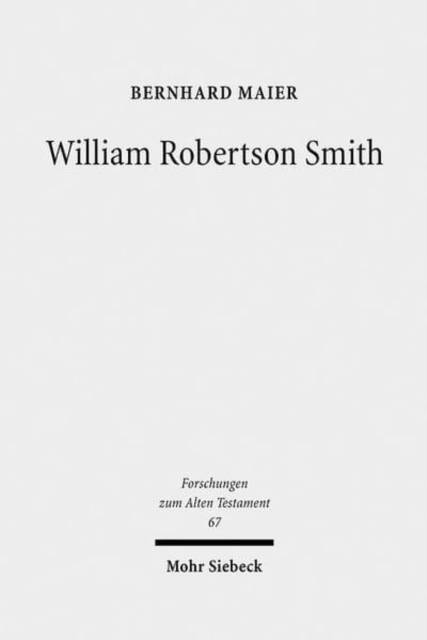
- Afhalen na 1 uur in een winkel met voorraad
- Gratis thuislevering in België vanaf € 30
- Ruim aanbod met 7 miljoen producten
- Afhalen na 1 uur in een winkel met voorraad
- Gratis thuislevering in België vanaf € 30
- Ruim aanbod met 7 miljoen producten
Zoeken
Omschrijving
William Robertson Smith (1846-1894) was successively the embattled champion of the emergent higher criticism as applied to the Old Testament, chief editor of the Encyclopaedia Britannica, and Professor of Arabic at Cambridge University. Today he is acknowledged to have been a pioneering figure in both social anthropology and the study of comparative religion, deeply influencing the thinking of J. G. Frazer, Emile Durkheim and Sigmund Freud. The first full-length biography of Robertson Smith to be published for almost a hundred years, this text makes use of hitherto unknown material preserved by the Smith family and draws upon the extensive range of correspondence between Smith and such scholars as Albrecht Ritschl, Paul de Lagarde, Julius Wellhausen, Abraham Kuenen and Theodor Noldeke. Adopting an interdisciplinary approach, the biography locates and defines the place of this remarkable polymath within the context of Free Church Calvinism, the Scottish Enlightenment and 19th century German Protestant theology. It highlights Smith's interest in physics and philosophy, his friendship with contemporary artists, his Oriental travels, and his involvement in the social life of Edinburgh and Aberdeen. In recent years, the image of Smith as a comparative religionist has come to dominate all other perspectives and indeed tends now to overshadow his fame as an Old Testament scholar. This book seeks to redress the balance, aiming to discover the theological drive behind Smith's manifold activities.
Specificaties
Betrokkenen
- Auteur(s):
- Uitgeverij:
Inhoud
- Aantal bladzijden:
- 341
- Taal:
- Engels
- Reeks:
Eigenschappen
- Productcode (EAN):
- 9783161499951
- Verschijningsdatum:
- 31/12/2009
- Uitvoering:
- Hardcover
- Formaat:
- Genaaid
- Afmetingen:
- 153 mm x 229 mm
- Gewicht:
- 652 g

Alleen bij Standaard Boekhandel
+ 331 punten op je klantenkaart van Standaard Boekhandel
Beoordelingen
We publiceren alleen reviews die voldoen aan de voorwaarden voor reviews. Bekijk onze voorwaarden voor reviews.








